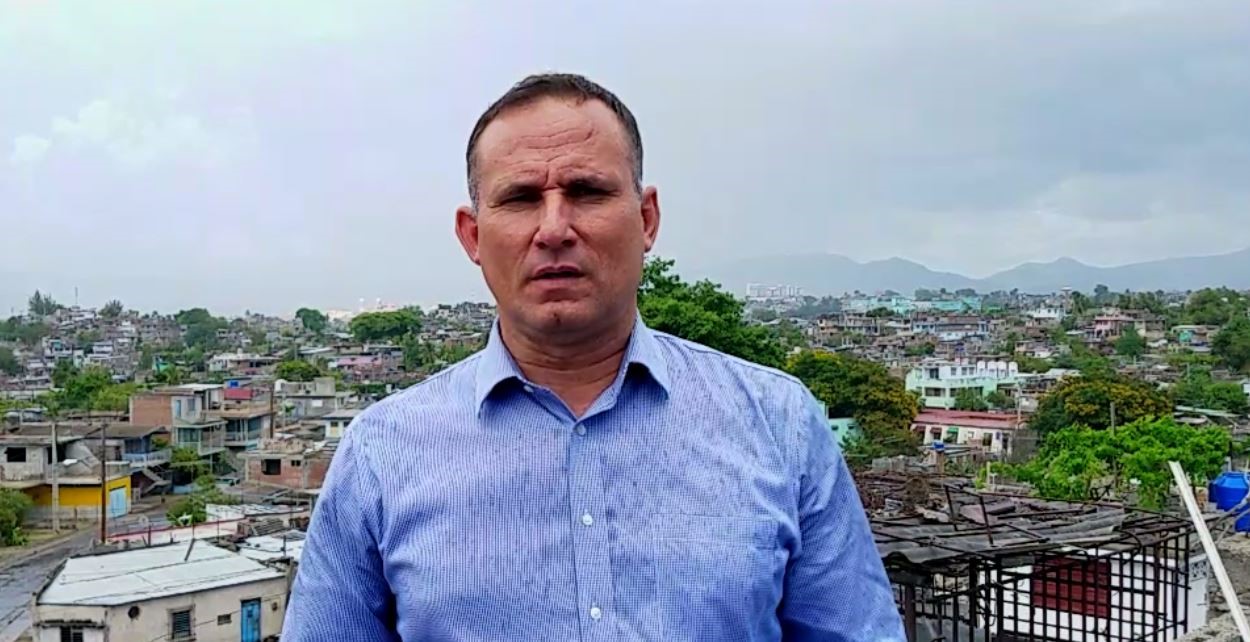Jose Daniel Ferrer, Cuba’s Voice for Human Rights and Democracy

The International Republican Institute (IRI) stands with the brave human rights defenders and democracy activists around the world working to secure a better future for their countries. On the day of his trial, we decided to profile one of Cuba’s most prominent human rights activists, Jose Daniel Ferrer, who has been imprisoned by the regime since autumn of 2019.
Ferrer leads UNPACU (Patriotic Union of Cuba), an umbrella organization that has supported many different dissident groups in their nonviolent struggle to bring democracy and respect for human rights to the island. He has been confined in a Cuban jail cell since October 1 and February 28 will be his 150th day in prison. On February 26, he will be put on trial under accusations of attacking a person and causing bodily injuries.
These allegations do not ring true when it comes to this high-profile human rights and democracy activist and father of three. What does ring true is that Cuba’s communist regime is yet again taking extreme measures to silence a highly effective activist.
This is not Ferrer’s first time in detention. He was rounded up during Cuba’s Black Spring crackdown on dissidents in March 2003 and sentenced to 25 years in prison for promoting the Varela Project, which attempted to circulate a legal proposal that would enable democratic political reforms. Seventy-five activists were imprisoned, including journalists, librarians and human rights and democracy activists. The international human rights watchdog Amnesty International declared Ferrer a prisoner of conscience, and President Obama called for his release in 2009. Ferrer was released in 2011 as part of an agreement between the Cuban government and the Cuban Catholic Church.
Rather than go into exile, Ferrer chose to stay in Cuba and established UNPACU, which now supports more than 100 small groups and some 3,000 activists. As Jose Daniel has stated, UNPACU “serves as a bridge for victims of injustice” by broadcasting their treatment to the world. In the past five years, members have reported more than 40 state-sponsored attacks on UNPACU headquarters and those of organizations it supports. On August 27, police conducted a raid on UNPACU, confiscating computers, cell phones and televisions. Ferrer was briefly arrested in reprisal for published statements and social media posts regarding the government.
U.S. Secretary of State Michael R. Pompeo called for Ferrer’s release in a letter to Cuban Foreign Minister Bruno Rodriguez. Amnesty International, the United Nations Commissioner for Human Rights, the Organization of American States and others have requested explanations without response by the Cuban regime.
On November 7, Ferrer’s wife was able to visit him for five minutes in Aguadores prison in Santiago de Cuba where he pointed out signs of torture all over his body. Ferrer’s son and wife were detained by the regime and told to inform Ferrer that if he left the country he would not be convicted. Ferrer has stated previously that he would never leave Cuba, especially not in conditions such as these.
Questions remain about the timing and the length of Ferrer’s arrest, as the regime has not detained an activist this long since the Black Spring, and the arrest came amid rising discontent over failing oil supplies and frequent blackouts. The government may also be worried that the centrist course Ecuador has taken, the protests in Nicaragua and Venezuela, and, more recently, the popular rejection of electoral fraud in Bolivia, are signs of dwindling support for authoritarian government in Latin America.
As the horrendous treatment of Ferrer shows, it is clear that what the Cuban regime fears most is the prospect of its own people demanding political freedom. As Ferrer has stated, all Cubans want is to “live with freedom, justice, prosperity, and wellbeing and to have all of their rights and freedoms respected” and he continues his fight for this cause. The day of Jose Daniel Ferrer’s trial is a fitting occasion to reflect on the sacrifices being made by this courageous activist who is risking his life to deliver a better future for his people.
Top